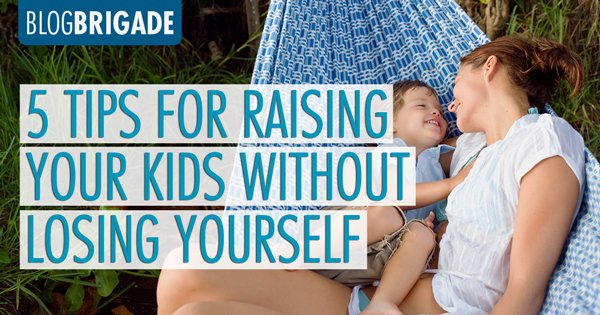

Julie
Bubble wrap ‘em. I’ve wanted to bubble wrap my kids’ hearts, minds and skins on many occasions. That’s what all parents want (right?) — to protect our kids from the hurts, fears and tragedies in the world. I guess packaging them like precious porcelain doesn’t do much for making them resilient human beings even if the image gives us the false sense of keeping them safe. One of the greatest gifts we can give our kids is the knowledge of how to handle tragedies and difficulties in a healthy way. So how do we equip our kids with coping skills when we are still trying to figure that out as adults?
The American Academy of Pediatrics, or AAP, recommends parents and those who work with children act as filters before funneling information of national tragedies and crisis to children. They suggest we present the information in a way the child can understand, cope with and adjust to. Here are five ways to act as filter and guide as you help your children process what happened and build coping skills to see them through life.
1. Check your emotions. Your emotions speak louder than words.
When my kindergartener came home from school on 9/11 she started asking me about why airplanes were flying into buildings and people were jumping out of them. Already emotionally charged from having seen it on the news during my work breaks, I did my best to answer her questions as simply and factually as I could, but I know my emotions weren’t in check. That was confirmed when I asked my daughter (now 20) to remember that day. Mostly, she remembered how mad I was at her teacher for letting the class watch the news coverage. Yikes. Emotions have more hang time in memory.
2. Limit media exposure. Turn it off. Keep exposure to the images, commentary and media’s tragedy-branding theme songs to a minimum.
As adults, we tend to crave the information, and want to know the latest developments. But for our children, all that exposure to the raw images, media frenzy and regurgitation of information isn’t healthy — it forces them to focus on the fear of events instead of how to cope with them. If you do allow your children to watch some of the news coverage, watch it together and use it as a conversation starter. Talking about what happened, the fears the event creates or anything that worries your kids or you is a healthy way to cope with tragedy. Model it and they’ll join the discussion and learn with you.
3. Ask your kids. What did you hear? Do you have any questions? And actively listen to their answers.
Find out what they’ve heard and what their questions are so you know where to start with the information. This can help you find out what their fears are early on and can help you assess what they may need to know in order to help them learn to cope. School shootings were the tragedies that scared my kids the most. It’s something they understand as they go through lock-down drills in school multiple times every year. When you discover their fears, you may be able to help them reframe how they view things. Help them understand the lock-down drills are for safety, just like buckling seat belts. You practice it so when you need it, it’s already in place to keep you safe.
4. Answer their questions. Be direct and honest and stick to answering only what they ask.
There’s no need to overload kids with information. Provide them with the answers they need and ways to cope with the emotions. Let your main message to your children be that it’s OK to be upset by what happened, we’re going through this together and will help each other through it. This is also an opportunity to teach your kids about compassion and empathy. As they tell you how they feel, talk about how you all think others may feel. Take it a step further and discuss how you may be able to help the victims. What is something you can do together to help those suffering? Helping others is another way to cope with the darkness in the world…add in some light.
5. Support when needed. Be there for your children emotionally when they need it.
Model caring and compassion to your children and others, and your children will notice and repeat. After you help them or someone else, explain to your kids how you knew they needed support, what made you decide to act and what to do. Teach them what they can look for in others that will clue them in to someone who may need help. Kids are small, but their hearts and minds are mighty. Give them the power to look for ways and means to help others. Show your kids that being there for someone only takes small acts, but can mean the world to the person in need at that moment.
A little girl in my daughter’s preschool lost her dad during the attack on the USS Cole. Soon after that tragic loss, when my husband would pick up our daughter from preschool, the little girl would always come up to him. Maybe it was his haircut or uniform, but whatever the reason, she just wanted to tell him about her day and other times about her dad. He would take some time to listen and return a hug if she wanted one. Maybe it was her way of feeling close to her dad — a preschooler’s way of getting a message of love through. Whatever it was it seemed to put a smile on her face and helped her at that moment.
Join the conversation. Please share what things helped your kids process and cope with world tragedies.














